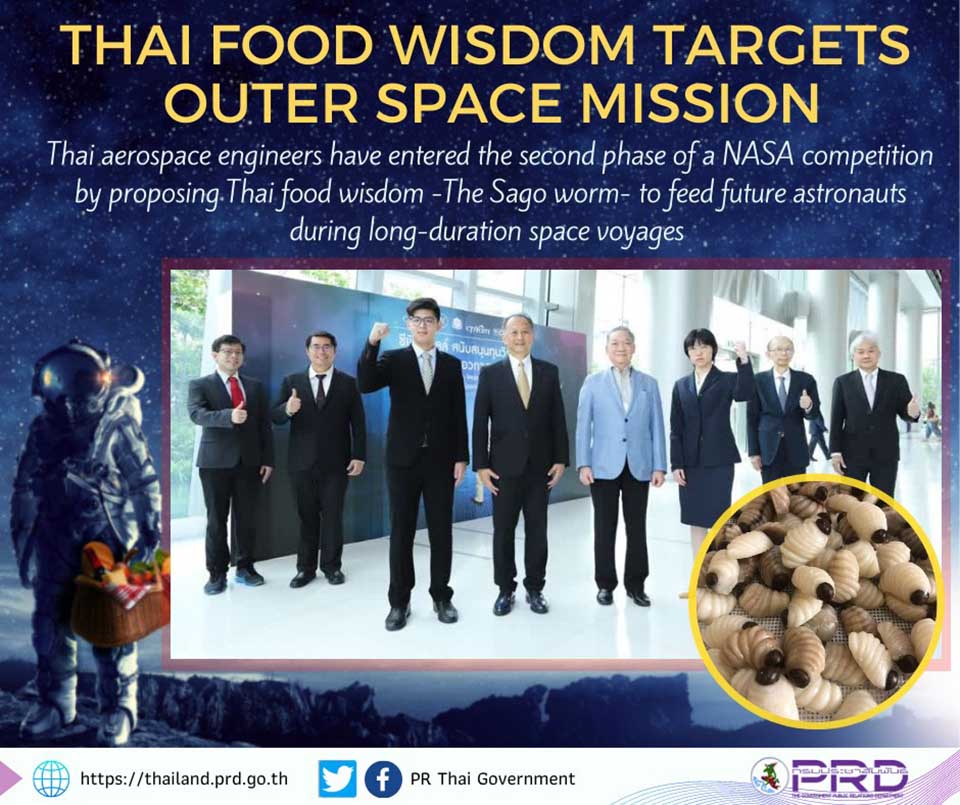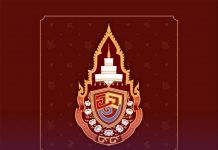
Thai aerospace engineers have entered the second phase of a NASA competition by proposing Thai food wisdom – the Sago worm – to feed future astronauts during long-duration space voyages.
As one of the 10 top-scoring worldwide winners, “Keeta,” the only space engineering team from Thailand and Asia, was invited to participate in phase 2 of the “Deep Space Challenge,” an international competition organized by the National Aeronautics and Space Administration (NASA), in partnership with the Canadian Space Administration (CSA) and the Methuselah Foundation. The organizers are looking for novel and game-changing food technologies or systems that require minimal resources, produce insignificant waste, and maximize safe, nutritious, and portable food outputs for long-duration space missions.
The Keeta team, combined of Thai aerospace engineers from Chulabhon Royal Academy, Chulalongkorn University, Valaya Alongkorn Rajabhat University, and other private sector bodies, has proposed the strengths of Thai food culture, such as the Sago worm, to create a reliable food production system for a long-term mission of up to three years without any resupply from Earth. The worm contains a high amount of protein and fat for human consumption, and from an agricultural standpoint, it is a species that can be cared for in an enclosed environment with limited space; it is also easy to harvest and is sustainable over long periods.
The Keeta team is currently endeavoring to pass into the next phase of the competition and will be ready for examination by the NASA team in the early part of next year. (PRD)
 |
 |
 |





